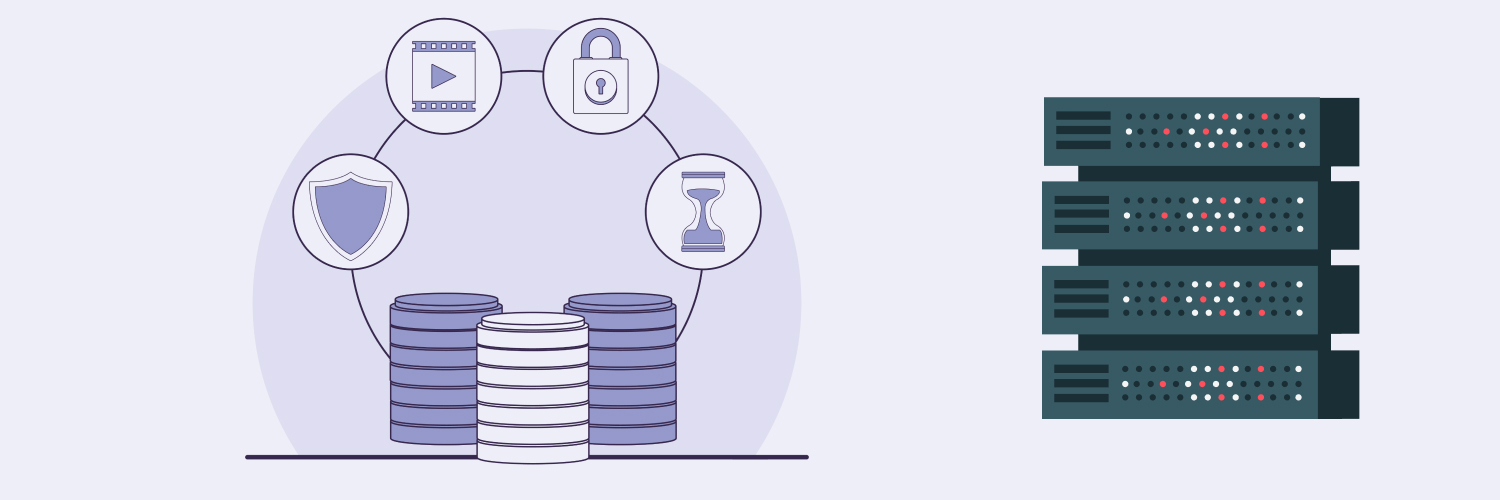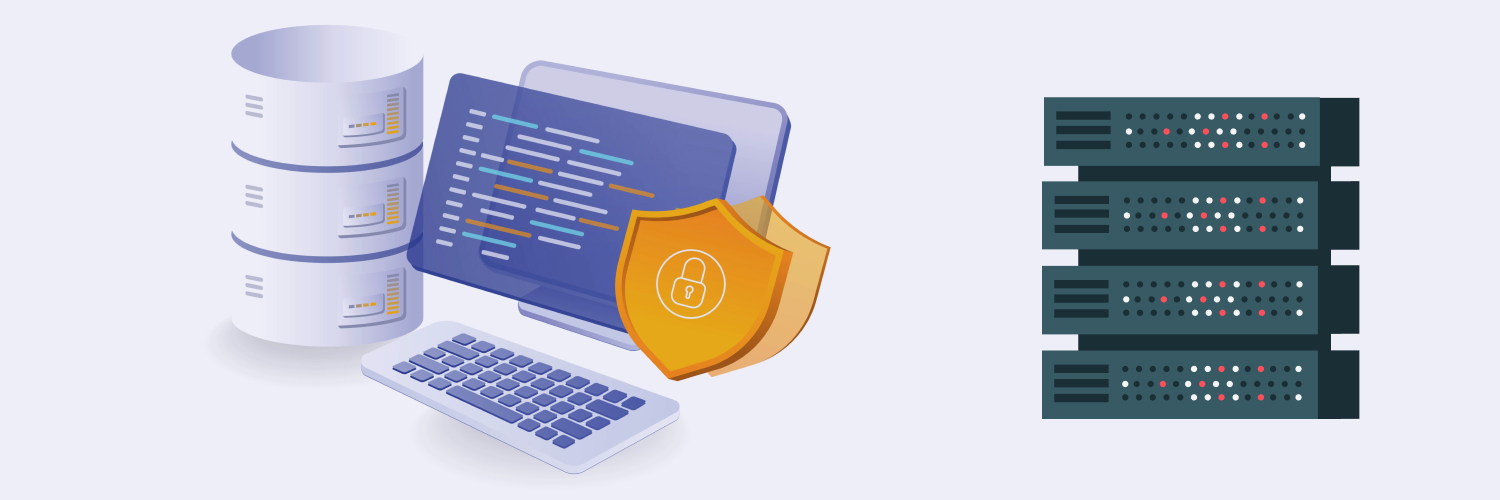Learn To Recognize Data Opportunities And Use Them To Your Company’s Advantage
In the business world, data opportunities are everything. It helps companies decide what products to sell, which customers to target, and how to allocate their resources. But data can also be used to find new business opportunities that a company may have overlooked.
For these reasons, big data is more than a buzzword. It’s a game-changing technology that can help boost your business by giving you invaluable insights into your customers, operations, and the overall health of your business. You can use the table of contents to skip ahead if you already know what big data is and want to get to how you can use it.
What Is Big Data and Why Is It Important for Businesses?

The term “big data” refers to data sets so large and complex that traditional data processing applications are inadequate. Some of the challenges of big data include capturing data, data storage, data analysis, search, sharing, transfer, visualization, querying, updating, and information privacy.
The main characteristics of big data are:
- Volume: More than 2.5 quintillion bytes of data are created daily, and this data is generated from sources such as social media, sensors, and transactions.
- Velocity: Data generation and processing speeds are also increasing. Data must be processed in real-time to meet the needs of business users.
- Variety: Data comes in many forms, such as text, images, audio, and video.
- Variability: Data can be inconsistent and incomplete.
So, how does data help in evaluating a franchise opportunity? Businesses employ big data to:
- Develop new products and services
- Detect fraud and other risks
- Improve marketing efforts
- Improve customer service
- Streamline operations
- Reduce costs
- Boost sales
For example, picture a company that sells products to businesses. Their data might show that most of their sales come from a few large customers. But what if they looked at the data differently? What if they segmented their data by product type or by geography? They might find that other customer groups are interested in their products, but they haven’t reached out to them.
The same applies to companies that sell products to consumers. They might have data on what kinds of products their customers buy and how often they buy them. But if they looked at the data differently, they might find other products that their customers would be interested in. A big data opportunity can help a business quickly exploit an area for growth.
How Is Understanding Data Analytics Going To Help You With Your Next Opportunity?

Data analytics, which refers to the process of analyzing data to find trends and patterns, can be used to predict future events, understand customer behavior, and more — essentially using data science to analyze opportunity wins or losses.
Understanding data analytics can help you find new growth opportunities through data. For example, if you understand how customers use your product, you can develop new products or marketing campaigns targeting their needs.
Data analytics can also help you understand your competition better. By understanding how they’re using data, you can find new ways to compete with them. Remember, gathering data is only half the battle. The other half is making sense of it.
How Can You Recognize Data Opportunities for Your Company?

There are several ways you can recognize an opportunity in data. One way is to look for trends. For example, you might notice that more and more people are searching for a particular product on your website. This could be an opportunity to start selling that product.
Another way to find opportunities in data is to look for patterns. Consider, for example, sales opportunity data. You might notice that people who search for a specific product on your website are also interested in other products. This could be an opportunity to start selling those other products.
You can also find opportunities in data by looking for relationships. People who live in certain areas may be more interested in your product than the rest of the country. This could be a chance to start targeting your marketing in that area.
Finally, you can look for outliers. For example, you might find that a small number of people are searching for a specific product on your website. This could be an opportunity to increase the production of that product to make more sales.
How Can Businesses Use Big Data To Find New Opportunities?

There are many ways businesses can use big data to find new opportunities. Here are a few examples:
- Segmentation: Segmenting data can help businesses understand their customers better and find new growth opportunities. For example, a company that sells products to businesses might segment its data by industry, size of company, or location. This would allow them to target their marketing efforts more effectively and find new customer groups they hadn’t considered before.
- Products: Businesses can use data to understand which products are selling well and which aren’t. This information can be used to make decisions about which products to keep in stock and which to discontinue. Data can also be used to develop new products more likely to succeed.
- Demographics: Businesses can use data to understand their customer’s demographics. This information can be used to target marketing efforts more effectively and find new customer groups that the company hadn’t considered before.
- Competitors: Data can help businesses learn more about their competitor’s strategies and develop new ones of their own.
- Social media: Social media data can be used to learn more about customers’ interests and develop new products that intrigue them. They can also use this data to target their marketing efforts more effectively.
- Web scraping: Businesses can take advantage of web scraping and use various web data such as case studies, research materials, and performance data to create customer profiles. Companies might also use this data to understand customer buying habits and develop new marketing campaigns targeting their specific needs.
What Are Some Challenges Associated With Using Big Data for Business?

There are a few challenges associated with the use of big data for businesses:
- Quality: Since data comes from so many sources, it can be difficult to ensure that all of the data a business has access to is accurate and complete.
- Security: Because data contains a lot of personal information, businesses need to take steps to protect it from unauthorized access.
- Interpretation: Data can be complex, so it can be challenging for businesses to understand what it all means and how to use it to their advantage.
- Storage: Massive amounts of data are created and gathered daily, and businesses need to have enough storage space if they want to keep all of it.
You can also run into problems if you use web scraping to collect data. This is a process where data is collected from different websites and analyzed to find trends and patterns. Businesses can use the scraped data to understand their customers better and compete with their rivals.
The data you want might be spread across multiple web pages, so you’ll need a scraper that can navigate from page to page. The data you’re scraping could also be behind a login, which means you’d need to figure out how to bypass the login or get access to the data another way.
Scraping Robot can help companies gather data from the web efficiently and effectively. It’s a prebuilt scraper, so you don’t have to go through the hassle of building your own. It can help your business save time and money by automating the data-gathering process and minimizing your opportunity cost in data mining.
How can businesses overcome these challenges?
There are several ways companies can clear the above hurdles:
- Data quality control processes: These processes can help businesses ensure that their data is accurate and complete. Such processes include data cleansing, data standardization, and data validation.
- Data security measures: These measures can help businesses protect their data from unauthorized access. Some of them include data encryption, data access control, and data auditing.
- Data interpretation tools: This includes data visualization and data mining. Data visualization can help businesses understand data by creating visual representations of it. A data mining opportunity can be great for a company, helping it identify patterns and trends in data. This way, the business can understand what its data means and how to use it.
- Data storage solutions: Examples are data warehouses, data lakes, and data marts. These solutions can help businesses store their data so that it’s easily accessible and easy to manage. They also help businesses store their data securely and efficiently.
- Proxies: A data center, residential, or ISP proxy are excellent choices to help a business get the data it needs while keeping its identity hidden.
How can companies use proxies to get the data they need?
Proxies can help you easily mine big data through web scraping and create data mining opportunities for your company. Rayobyte can help companies obtain the right proxies for their needs:
- Residential proxies: These proxies use IP addresses provided by internet service providers (ISPs). Because residential proxies use IP addresses belonging to real users, they offer the highest level of anonymity.
- Data center proxies: Data center proxies have IP addresses that originate from a data center. They’re less anonymous than residential proxies since most regular users don’t have data center IP addresses.
- ISP proxies: A hybrid of residential proxies and data center proxies. They’re created by taking data center IP addresses and registering them with autonomous system numbers (ASNs) associated with ISPs. This makes them appear more like residential IPs.
Final Thoughts

Data analytics can help businesses obtain the data they need to make informed decisions and find more data opportunities. Even when data can be complex and challenging to understand, businesses can find new prospects for growth with the right data collection methods.
That’s why working with a company that can help you make sense of it all is crucial. Get in touch with Rayobyte today to find suitable proxies for mining the data you need to grow and adapt your business for the future.
The information contained within this article, including information posted by official staff, guest-submitted material, message board postings, or other third-party material is presented solely for the purposes of education and furtherance of the knowledge of the reader. All trademarks used in this publication are hereby acknowledged as the property of their respective owners.






